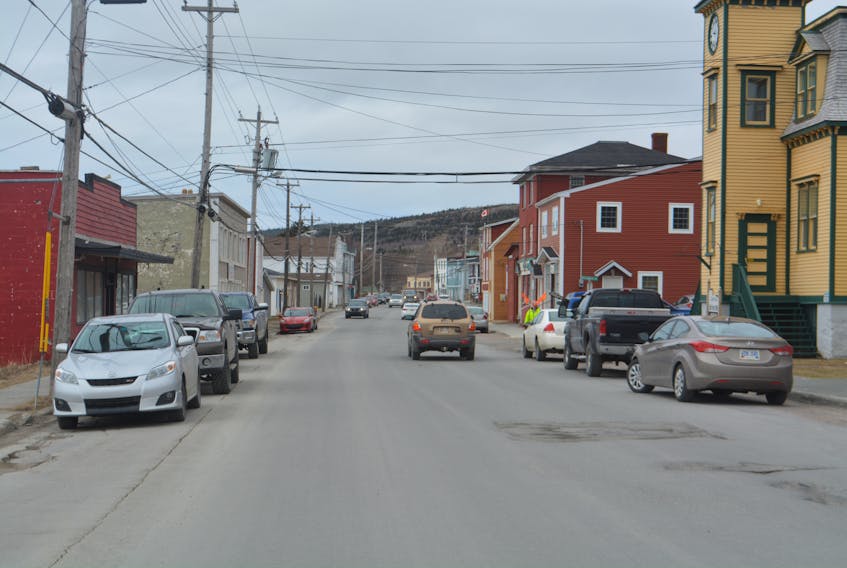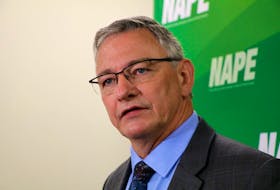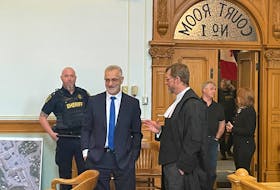BY ANITA FLOWERS
SPECIAL TO THE COMPASS
CARBONEAR, N.L. — The Harris Centre is taking the lead on providing an opportunity for community leaders and residents in the Trinity-Conception region to identify regional priorities in community and economic development.
It’s hoped the area can leverage Memorial University research capabilities as part of this relatively new process, which has been successful in other locations around the province.
The Thriving Regions Partnership Process (TRPP) engages people in regions around Newfoundland, helping to identify priority research themes for advancing the region’s economy and society. TRPP also provides funding for Memorial faculty, staff and students to get the research done.
A series of workshops are planned in the area that will identify, select and fund up to three publicly engaged research projects in response to regionally identified priorities. Each research project will be funded at $15,000.
The Harris Centre, Memorial University’s hub for public policy and regional development, will work both with local partners and Memorial University faculty, staff and students to complete the process.
Chris Paterson, project lead and knowledge mobilization coordinator at the Harris Center, sees several potential benefits based on similar processes in other regions.
“(It’s) opportunity for residents and communities to come together (often for the first time in years) as a region and share their ideas and vision for how the region can become even more vital and thriving,” Paterson said.
“Just having these discussions can often lead to recognition of new opportunities, shared ideas and emerging collaboration.”
The process will also create tangible results.
“The process will generate three applied research projects that respond directly to the priorities identified by people from the region,” Paterson said. “The findings from these research projects identify feasible community development opportunities and often provide a strong foundation that can then be picked up by and used by local businesses, organizations and/or entrepreneurs.”
A third benefit is collaboration between the university research teams and local communities.
“The research teams often engage directly with different community members from the region. As a result, both the MUN research community and local people develop positive relationships that continue beyond the time of the TRPP process itself.”
The first workshop focuses on identifying priority research themes that will improve the region’s economy and society.
“The purpose of the session is to identify specific ideas and opportunities that could support community and economic development in the region; and to select a few priority areas or ‘themes’ that will be used to solicit possible applied research by Memorial University researchers,” said Paterson.
This first workshop is scheduled for Sept. 27, and anyone who lives in the region is invited to participate.
“The session will be very interactive, with most of the time in larger or smaller group dialogue as people generate ideas and then move through a facilitated process to cluster and prioritize these into themes.”
The workshop will be held at the Princess Sheila Seniors Building at 163 Water St. in Carbonear from 9 a.m.-3 p.m. Lunch will be provided and the deadline to register is Sept. 23 at www.mun.ca/harriscentre.
After regional priorities have been identified, Memorial University researchers will be given the opportunity to develop projects to address these priorities. A fund evaluation committee, comprised of local and academic members, review the proposals and select three projects to be move forward with funding. The chosen researchers will then meet at a second workshop with local communities to gain feedback and develop partnerships with community groups and leaders.
Paterson expects the first part of the process to take about four months, as researchers and local partners complete the steps necessary to receive funding for the research projects. The completion of the research may take up to an additional year before results and recommendations are presented to the region.
Some examples of previously funded research from TRPP in other regions include a study assessing the potential of land-based production of green sea urchin roe on the Baie Verte Peninsula and research into agritourism and social enterprise as part of developing a Southwest Coast Food Loop, according to information from the Harris Centre.
The Harris Centre is excited about the possibilities for the region, said Bojan Fürst, knowledge mobilization manager at the centre.
“I think the most exciting thing about this process is that it allows us as a university to engage with regions in a more sustained manner,” Fürst said.
“We can really work with the community and the researchers to make sure that the conversations and the projects are relevant and that they make a difference.”









